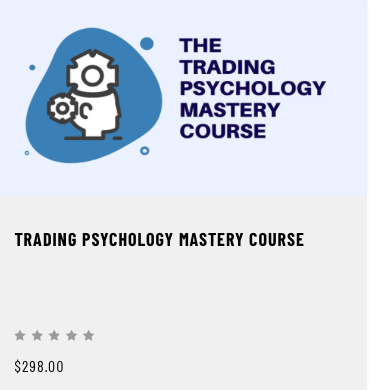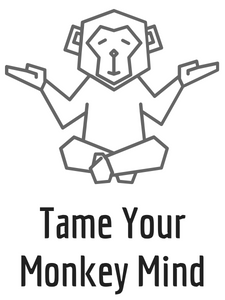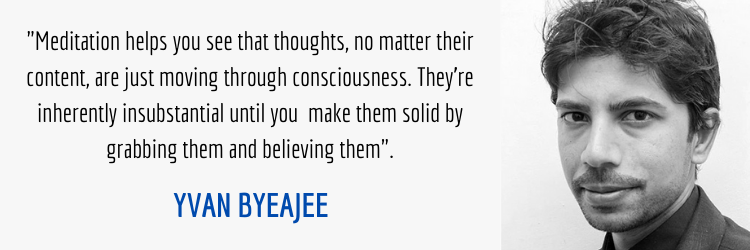What is TradingComposure.com?
TradingComposure.com is a website created by Yvan Byeajee that helps individuals develop the mindset required to become patient, fluid, and consistent traders. If you look out into the stock trading space, you’ll find a ton of gurus promoting their “foolproof” systems and strategies, but virtually none of them are willing to cover the most important aspect of trading – psychology. Without stability of mind, even the best systems and strategies will crumble. But if one learns to master the inner game of trading, the potential rewards can be substantial both financially and emotionally.
As humans, we can’t avoid our own thoughts and emotions. But acting impulsively on those thoughts and emotions is exactly what causes our inconsistency in the markets. We enter positions too late, exit too early, fail to cut losses at the proper time – the list goes on and on. Feelings of fear and greed seem to have complete control over us, ultimately causing destructive patterns of behavior that leave our accounts in shambles. But what we fail to realize is that it’s possible to bring awareness to these negative behaviors, counteract them, and make our trading operations rather enjoyable and effortless. By following Yvan Byeajee at Trading Composure, you will learn to deepen self-understanding, liberate your mind, and gain confidence in your approach.
Who is Yvan Byeajee and What is His Story?
Yvan Byeajee started trading part-time in 2006 and eventually went full-time in 2009, but those beginning years were far from lucrative. In fact, a handful of years were spent consistently losing and nearly blowing up a rather large $100,000 account. Left with a broken mindset filled with anxiety and doubt, he was provided with the opportunity to go on a meditation retreat. With no other option but to face his own detrimental thought patterns and insecurities, he experienced a complete paradigm shift on that trip. Ultimately, he was able to eradicate his deep mental complexes, develop self-mastery, and bring an entirely new mindset to the markets. One that preserves emotional capital, boosts consistency, and breeds profitability.
It’s safe to say that this 2-month long meditation retreat was a pivotal moment in Yvan’s life. He came to realize that his success in the markets (or lack of success up until that point) had everything to do with his mindset. Most people who attempt to trade for a living fail for this exact reason. They completely ignore the psychological aspect of trading and how much it can negatively impact trading results when neglected. Everyone thinks they can find some magic trading system that wins all the time, but that’s simply impossible. Losses are an unavoidable aspect of trading. The key is to find a high-probability strategy, implement that strategy with as little trading errors as possible, and generate consistent results over time. It’s a common misconception that the best traders are always right. Overall, it’s not about being right, it’s about trading right (following your system and rules associated with it without errors).
Yvan Byeajee’s Top 2 Training Courses to Help Master Your Mind and Boost Trading Profits:
 Course #1: Trading Psychology Mastery Course [View Course Content]
Course #1: Trading Psychology Mastery Course [View Course Content]
This course is a two-week practical trading psychology course that digs into topics concerning stability of mind, concentration, and non-attachment, among others. This is where success in the markets all comes together. It’s not about some indicator or particular pattern – it’s about being in control of your own mind. It delves into concepts surrounding mental conditioning and how you can subdue your need for always being right, detach your self-worth from trade outcomes, and remain even-tempered in your trading operations.
Unfortunately, less than 10% of traders find consistent, long-term success in the markets. But why is that the case? What is that small percentage of traders doing who are actually finding consistent success? It has to be something more than simply being smart because I’ve seen a lot of intelligent individuals fail at trading. This leads me to believe that it comes down to mindset. Very few individuals who jump into the markets have cultivated the critical practice of introspection and self-understanding. As a result, they bring with them their backpacks of insecurities and inconsistencies, which negatively carries over into their trading results.
 Course #2: Trading For a Living [View Course Content]
Course #2: Trading For a Living [View Course Content]
This course explores the possibilities of trading for a living, traveling the world, and working far less than the typical 40 hours per week. This is based on Yvan’s personal experiences trading, traveling, and creating the Trading Composure blog. Within it, he shares his business template, tips for traveling, and even the exact strategy he implements in one of his accounts that has a 70% win rate called The Rainmaker.
Many times, trading can be an extremely self-centered movement. But Yvan gets satisfaction out of sharing his knowledge and experience through his blog posts, books, and courses. Overall, Yvan has been able to cultivate a peaceful life for himself with a clear understanding of his own thoughts and emotions. This mindset has allowed him to exponentially boost his personal freedom, quality of life, and physical & mental health. Everything he does both in trading and business focuses on the preservation of emotional capital, and he can teach you to do the same.
Yvan’s #1 Secret to Trading Success → Daily Mindfulness Meditation
As stated previously, less than 10% of traders find consistent success in the markets. So you have to wonder, why is this the case? Why is the success rate so low? How come a certain strategy can work for one trader, but not for another? The answers to these questions all boil down to mindset. The successful traders understand the importance of good habits, practice discipline, and have mental clarity. Each trading moment, they’re completely focused on the flawless execution of their system. There will always be distractions, but they have the mental strength and resilience to quickly re-focus their thoughts. The struggling traders, however, don’t understand good habits and discipline. They think that they can get away with their bad habits and cheat cause-and-effect. But in the end, their haphazard approach produces inconsistent results. They are prisoners to their own impulses and destructive patterns of behavior.
|Rewire Your Brain For Successful Trading With the Help of Neuroplasticity|
|Check Out More of Yvan’s Guided Meditations For Traders on YouTube|
The good news is that all is not lost for struggling traders. Every single one of them has the ability to increase self-understanding and eventually gain mastery over their own emotions. It’s not something we’re born with. It’s a learned skill. Sure, some traders may have a predisposition for being more methodical and disciplined in their approach, but generally speaking, humans are fallible. We all have to deal with various cognitive biases that cloud our judgement and lead to irrational decisions. And that’s where mindfulness meditation can help us take a step back, observe that we have these biases, and do our best to avoid letting these biases negatively impact our behaviors. Some people think that meditation is some sort of religious ritual or that it’s pointless, but that’s simply untrue. It’s brain exercise that anybody can do and has been proven to reduce stress, anxiety & depression, while increasing focus, resilience & emotional intelligence. Numerous studies over the years have shown the benefits of meditation to be extraordinary.
Learning to Calm Your “Monkey Mind” and Dismantle Compulsive Behaviors:
 The monkey mind is a psychological analogy that compares the human mind to the actions of a monkey. Just like a monkey swings from branch-to-branch, our minds jump from thought-to-thought. In total, each individual has over 50,000 thoughts per day, many of which are filling our minds with fear and doubt. What will happen if I lose my job? Is my partner unhappy with our relationship? Will I ever be able to retire? These are the constant, exhausting thoughts that run through our minds all day. And without a proper hold on our own mind, it can be difficult to drown out the noise and focus on the present moment. Ultimately, failure to be aware of the monkey mind and have the ability to tame it results in suffering.
The monkey mind is a psychological analogy that compares the human mind to the actions of a monkey. Just like a monkey swings from branch-to-branch, our minds jump from thought-to-thought. In total, each individual has over 50,000 thoughts per day, many of which are filling our minds with fear and doubt. What will happen if I lose my job? Is my partner unhappy with our relationship? Will I ever be able to retire? These are the constant, exhausting thoughts that run through our minds all day. And without a proper hold on our own mind, it can be difficult to drown out the noise and focus on the present moment. Ultimately, failure to be aware of the monkey mind and have the ability to tame it results in suffering.
In order to avoid undue suffering, we have to be able to calmly and objectively listen to our monkey minds. When we learn to meditate, we learn to non-judgmentally observe, detach from our thoughts, and clearly understand why we’re feeling the way we feel. These moments of detachment bring peace to our otherwise busy minds, allowing us to better avoid thinking indecisively and acting impulsively. When you realize that most traders have never taken the time to develop and maintain stability of mind, it’s relatively easy to understand why so many traders fail. Inconsistent behavior leads to inconsistent results. Failing traders are overwhelmed, impulsive, and overreact. Successful traders are calm, patient, and concentrated.
Trading Composure Covers the Key Component Missing From Almost Every Other Trading Program:
I’ve personally used and reviewed many different stock trading programs and services over the years and not a single one of them has mentioned the importance of a consistent meditation practice or deeper-level understanding of our own minds. Sometimes they’ll vaguely touch on trader psychology and mindset, but nobody is providing the kind of actionable mindfulness education that Yvan Byeajee at Trading Composure is providing. Other stock trading programs are quick to provide alerts or indicators that subscribers can supposedly use to gain some sort of edge, but the real edge comes from within. Components like strategy and risk management are certainly important, there’s no denying that, but proper mindset is the glue that brings everything together.
|Learn How to Dismantle Your Destructive Trading Habits and Become Consistently Profitable|
|Check Out Yvan Byeajee’s Trading Composure Blog and Start Improving Your Mindset|
Overall, trading is extremely difficult because it’s counter-intuitive to human nature. Humans are built for survival and our thoughts allow us to quickly evaluate scenarios, judge outcomes, and react to threats. As a result, we tend to act impulsively and overreact for our own safety. But if we bring that same demeanor to the markets, things can go downhill in a hurry. That’s when we find ourselves jumping into positions without a proper plan, leaving profits on the table by exiting too soon, etc. In order to be successful as traders, we must learn to be calm, rational, and deliberate in our approach. Most importantly, we must realize that the market won’t behave in accordance to our own personal needs and desires. We can’t control the market. The only thing we can control is the way we react to it. The sooner traders accept this fact, the sooner trading becomes an enjoyable, non-afflictive experience.
Are You Ready to Overcome the Mental Resistance That Stands in Your Way of Becoming a Consistently Profitable Trader?
Written By Matt Thomas (@MattThomasTP)
Related Pages:
- Best Trading Psychology Courses Available Online
- What is Yvan Byeajee’s Trading Psychology Mastery Course
- What is Trading Composure? Acquire a Heightened Level of Trading Insight
- #1 Reason 90% of Traders Fail and How You Can Avoid Being One of Them
- What is Day Trading Psychology? The Foundation of Day Trading Success






This review is an eye opening one especially for traders who are struggling and don’t understand why. Learning the importance of mindfulness in trading is a really essential lesson to understand. I’m glad to have seen this article.
Thanks
Thanks a lot for the guidelines.Such information is very important, especially for young people. I always like this kind of advice and I’m happy to follow it. Thank you.
This is a different way of looking at trading success. The state of mind is a crucial part to trading online and is often overlooked as we dwell on observing trends and minimising risks. Thank you for sharing on this, perhaps I may rethink my trading approach after I learn how to meditate.
Thank you for sharing this. Mindset is very important in all aspects of life. I am involved in trading on a low scale. The more I read it became more clear that it fits in with my views. As you say losses are inevitable. It is how your mindset enables you to deal with the situation. It shows that it is an important lesson in life, not just trading. If people have a mindset that enables them to manage failure they will be more successful.
I was referred to TradingComposure by my brother but I wasn’t sure if it was legit or not, so I decided to do some research online. I believe my doubt has been cleared, thanks a lot.
I am new to trading and I have often wondered why there’s such high failure rate in trading. I don’t wanna make the mistakes other traders have made, but I can only learn from their experiences, Truthfully just as you have written about the mind, it’s importance in anything we do cannot really be overemphasized. I really was amazed with all the secrets shared. I am putting all these to work and I hope to come with a more positive result.
I think anyone who wishes to get into trading should give this a read. The author has talked about some really important aspects that need to be given thought for a successful trading venture. There is a lot to learn from this article about trading psychology that isn’t offered much elsewhere. Trading is a tricky thing if you do not understand it well, and I feel like most people have the wrong understanding of it. This article is a great help to solve this problem. Thanks for sharing with us.
This is particularly timely as I look to diversify my investments and use some of my time, now I am semi-retired. Getting the “timing” right on trading has always been something that has concerned me, especially with the funds I am invested in. Consistency with a solid psychological approach sounds like a winning strategy. But HOW do you cope with a situation where a market segment collapses due to the indiscreet comments of a President or Prime Minister? Finance Minister? How do you avoid or monitor those? & react in a timely way? What trading platform do you recommend for Mr Average who wants to start? Your advice on calming “Monkey” minds and avoiding compulsive behaviours sounds wise. I see you make suggestions for some courses. I will look at these and see if they are appropriate for me to follow. Thank you for this interesting niche and suggestions.
Hi Trevor – these are great questions. Keep in mind that in my response I’m not providing any specific investment advice, just sharing in broad terms what I would do. But first, we have to distinguish between investing and trading. Most of the time these terms are used synonymously, but they are quite different. With investing, we’re typically talking about hold times of a year or longer. With trading, we’re typically talking about hold times of a few months or days, but can be as short as hours, minutes or seconds.
When it comes to long-term investing, mindset is important but not as important as in short-term trading, as long as your portfolio is diversified appropriately and you trust that time is on your side. It’s more of a “set it and forget it” type of approach. With investments, it’s all about dollar cost averaging. With this technique, there’s no attempt to time the market at all. It’s about averaging into investments at regular intervals without trying to guess market tops or bottoms. The reality of the market is that it’s constantly ebbing and flowing. Some sectors are in downtrends while others are in uptrends. It’s futile to try and predict exact tops and bottoms, or what some political figure might say that could impact certain sectors at any given moment. Those things are completely out of our control. The only thing we can do to counteract these uncontrollable variables is diversify, dollar cost average, and allow the market to do what it does. Over long periods of time, history shows that the trend is up (examples: S&P 500, NASDAQ & DOW).
When it comes to short-term trading, this is where people get into the most trouble. They think it’s a way to get-rich-quick, but they don’t truly understand how hard it is to consistently succeed within the market environment. Sure, pretty much anybody can open up a brokerage account and start making trades. It’s extremely easy these days. And they might even get lucky on a handful of trades. But that doesn’t mean they can sustain that initial success over time. People bring all sorts of emotional baggage into the markets without even realizing it, and their insecurities, bad habits, defense mechanisms, and unrealistic expectations have a way of manifesting themselves into impulsive behaviors. So instead of following their plans or systems, they consistently break their own rules. They over-allocate funds into one trade, they make trades without their system signaling entries, they exit before their profit target is met, and make many other trading errors. It boils down to the 4 main trading fears: the fear of losing money, being wrong, missing out, and leaving money on the table. Overall, trading can be an extremely afflictive experience, both emotionally and financially, if we allow it to be. But there are ways to dismantle compulsive and destructive thought patterns which cause inconsistency in the markets, which is exactly what the courses I suggest within Trading Composure help with.
I couldn’t agree with you more! I’ve dabbled in FX trading over the years, and the thing that the best teachers always focused on was the importance of developing the right trading psychology. With the rollercoaster nature of trading, it takes a strong mindset and great discipline to be able to stick with the system you’re trading, especially when you hit loss after loss after loss!
Thanks for sharing your thoughts. What most traders don’t realize, or more accurately – don’t want to accept, is that losses are a normal part of any trading system. Most people are searching for a foolproof system that only produces winning trades, but that doesn’t exist. It’s completely normal to hit a few losses in a row every now and then. What’s important is that your system has a positive expectancy, which means your system makes money over a large series of trades, and that you stick to that system with little to no trading errors. That’s really all it takes to be a consistently profitable trader. But it’s much easier said than done! It takes time to develop a suitable strategy and cultivate the proper mindset.
I completely believe in mindfulness and the power with our minds on so many levels. I personally try to start my day with yoga and finish with meditation. When I get stressed I use various mindfulness techniques to calm my mind so that I can refocus.
I must admit that the thought of using meditation to boost trading results initially sounds bizarre and an odd thing to do, however, understanding the mind and market environment, it does make perfect sense. I do not participate in actively trading the stock market that much but know it to be very stressful. When we are at an increased stress level our brain does not function effectively due to our fight/flight mechanism. Having a way of coping under these parameters can only be a good thing.
Hi Imelda – I really appreciate your comments. The great thing about meditation and cultivating mindfulness is that it can help you in pretty much any aspect of life. The real-life applications are pretty much limitless.
You’re right that most people don’t think of meditation when they think about potentially becoming a trader, but most people don’t think that mindset is all that important when it comes to trading. In my personal opinion, however, mindset is the most important aspect of becoming a consistently profitable trader. Unfortunately, most people ignore the mindset aspect and that’s why they jump right into the markets unprepared and experience a great deal of both emotional and financial pain as a result. Mindset is the foundation and I wish more traders understood that connection before risking their hard-earned money in the markets.